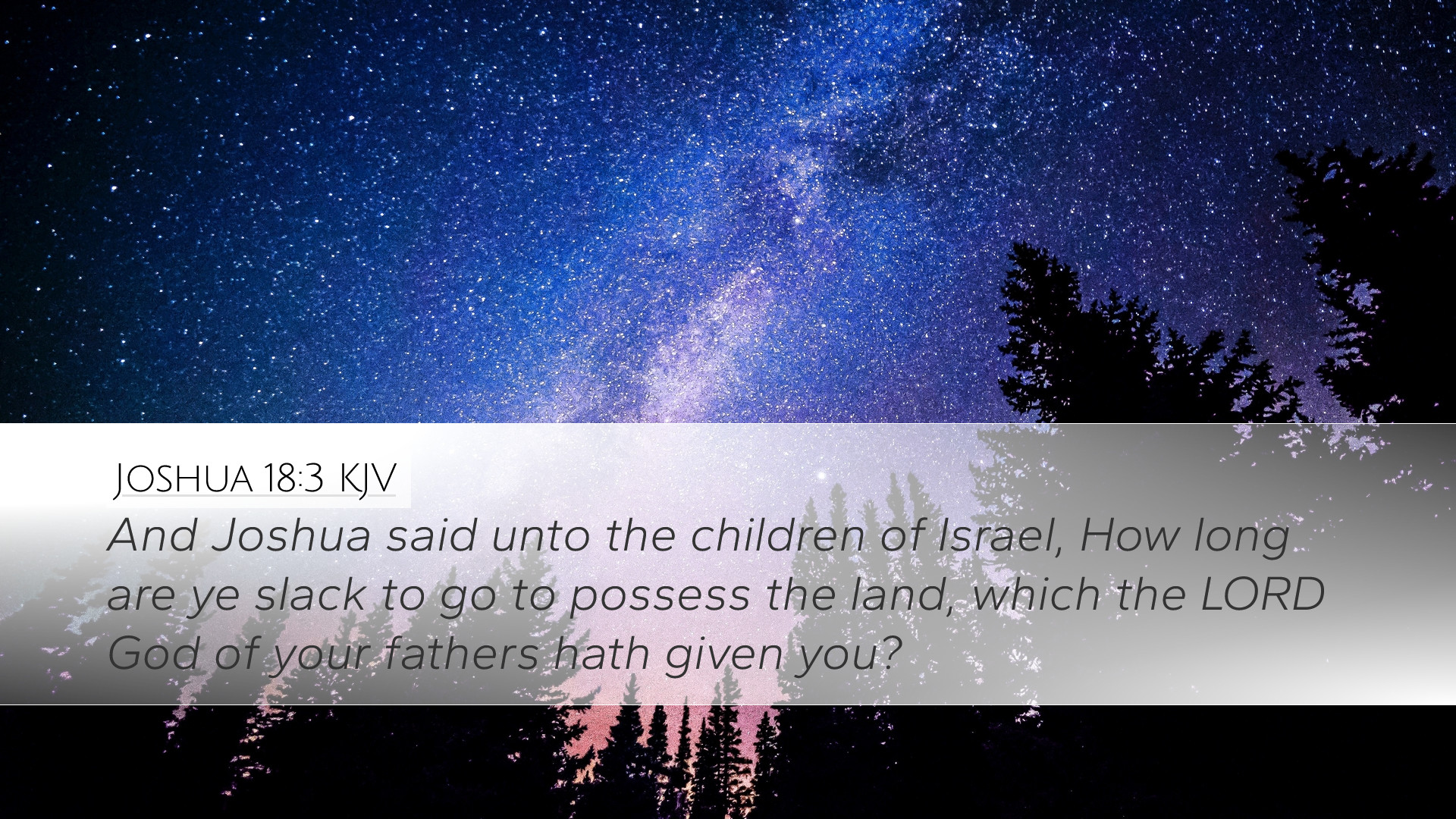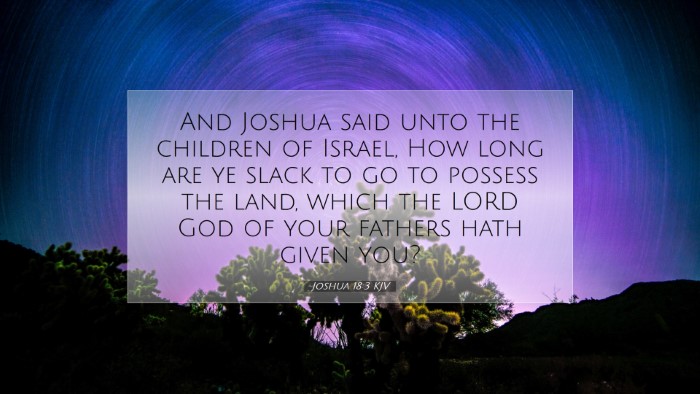Commentary on Joshua 18:3
Bible Verse: "And Joshua said unto the children of Israel, How long are ye slack to go to possess the land, which the Lord God of your fathers hath given you?" (Joshua 18:3)
Introduction
The verse encapsulates a pivotal moment in Israel's history as they stand on the threshold of inheriting the Promised Land. This exhortation from Joshua reveals much about the spiritual state of the Israelites as well as the imperative of active faith in the fulfillment of God's promises.
Historical Context
Matthew Henry points out that the context is critical: the Israelites had already experienced God's deliverance from Egypt, witnessed miraculous provisions, and yet here, at this juncture, they lingered in indecision.
As noted by Albert Barnes, this moment reflects a broader theme in the Israelite experience—while they have been brought to the brink of their inheritance, they must now take possession of what has been divinely promised to them.
The Call to Action
Adam Clarke elaborates on Joshua's question—“How long are ye slack?”—as a challenge to the people's faith and resolve. The repetition of this inquiry echoes the urgent personal responsibility placed upon each Israelite to act upon their beliefs.
- Spiritual Slackness: The term "slack" indicates apathy or a lack of urgency in claiming what is rightfully theirs.
- Faith in Action: The land represents not just physical territory but the fullness of life and promise that God offers. The Israelites' hesitance is a mirror for today’s believers who may find themselves stagnant in their spiritual journeys.
- Responsibility of Inheritance: The land has been given, but it must be possessed. This necessitates effort, courage, and reliance on God’s strength to conquer the challenges ahead.
Lessons for Today
For pastors, scholars, and students of the Word, this verse serves as a profound reminder of the calling to action inherent in the Christian life. Matthew Henry suggests that believers are often quick to receive God's promises but slow to act upon them.
This can manifest in various forms:
- Preparation vs. Action: It is easy to prepare for spiritual battles and study the Word but failing to apply this knowledge actively in one’s life leads to a stagnation. Albert Barnes encourages believers to not merely listen but to act on the teachings of Scripture.
- Collective Responsibility: Just as the Israelites were a community, Christians today share a collective inheritance in Christ, requiring unity and cooperation in seizing that inheritance.
- Faith and Risk: Engaging in God’s work may involve stepping into the unknown, demonstrating faith that God will fulfill His promises in our lives as He did for the Israelites.
Theological Implications
The exhortation by Joshua challenges theologians to consider the relationship between divine promise and human responsibility. As emphasized by Adam Clarke, God's covenant with Israel implies ongoing action and fidelity from those who are partakers of His promises.
This verse raises critical theological questions:
- Role of Free Will: How does the exercise of free will intersect with divine sovereignty in the context of possession and inheritance?
- Faith as Action: How can faith be genuinely expressed in actions rather than merely intellectual assent?
- Community Influence: How does collective faith and action among Christians affect the church's mission in the world today?
Conclusion
Joshua's challenge remains ever-relevant, calling out to each generation of believers to shed their procrastinations and actively pursue the abundant life promised by God. The historical and spiritual lessons embedded in Joshua 18:3 offer an opportunity for deep reflection and encouragement in fulfilling the Great Commission in our modern context.
As reflected by the insights of Henry, Barnes, and Clarke, may we recognize the urgency of Joshua's message in our own spiritual journeys and strive to possess the fullness of what God has provided.


